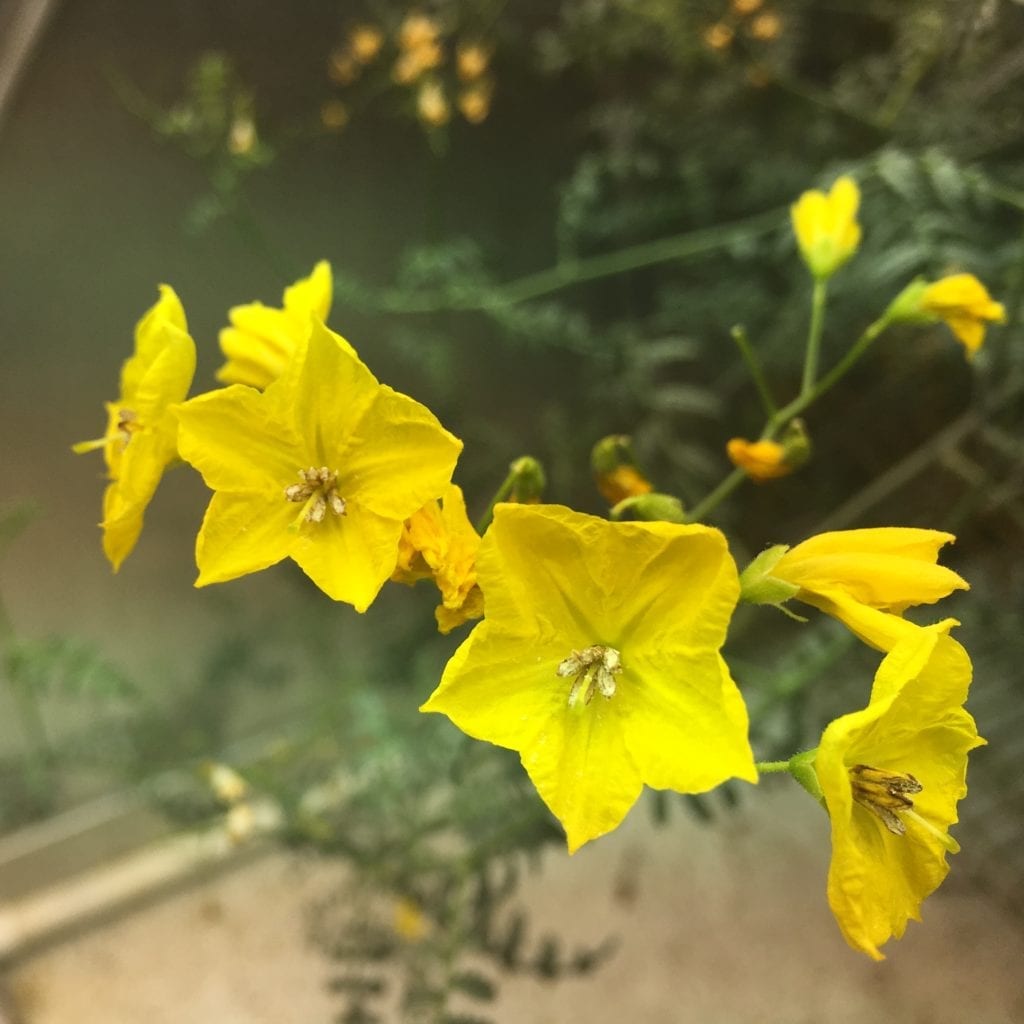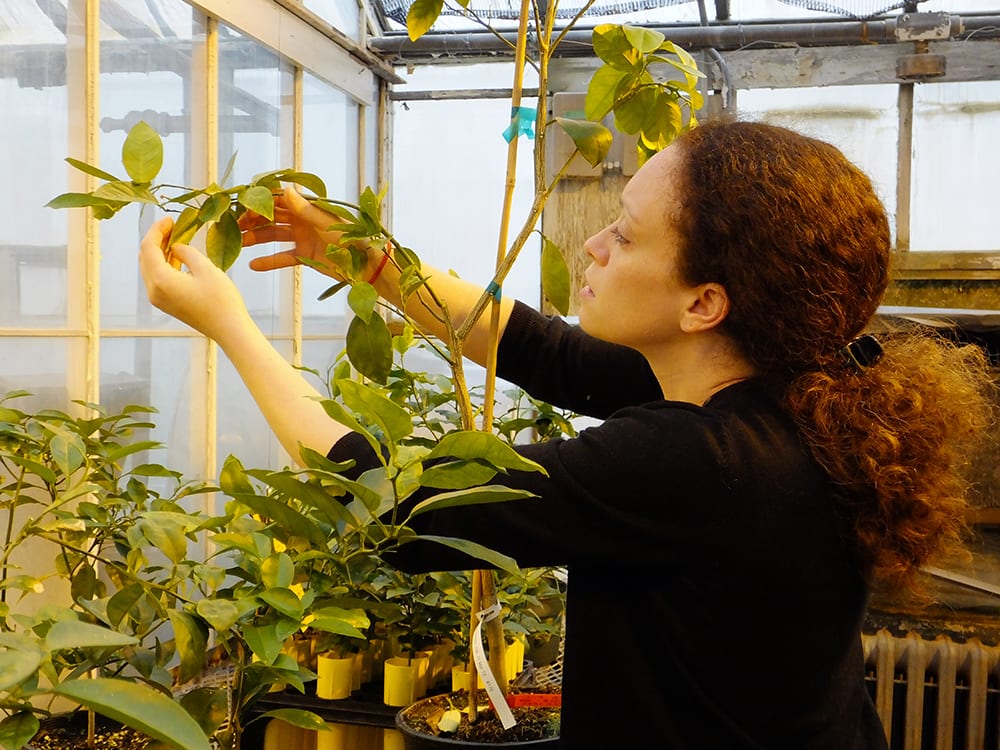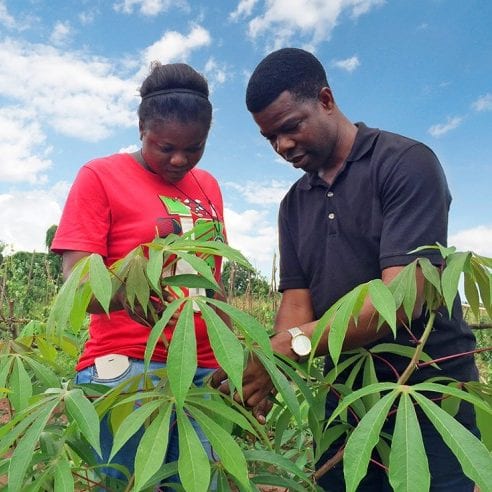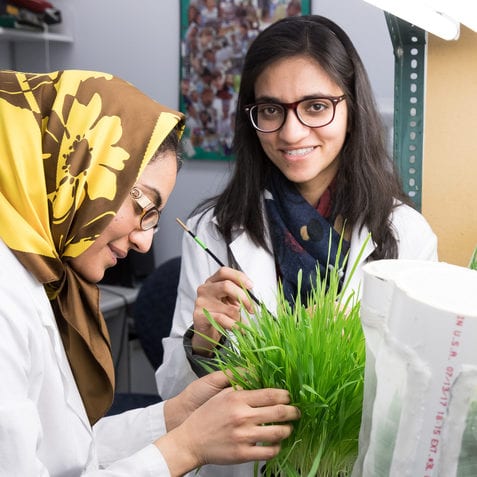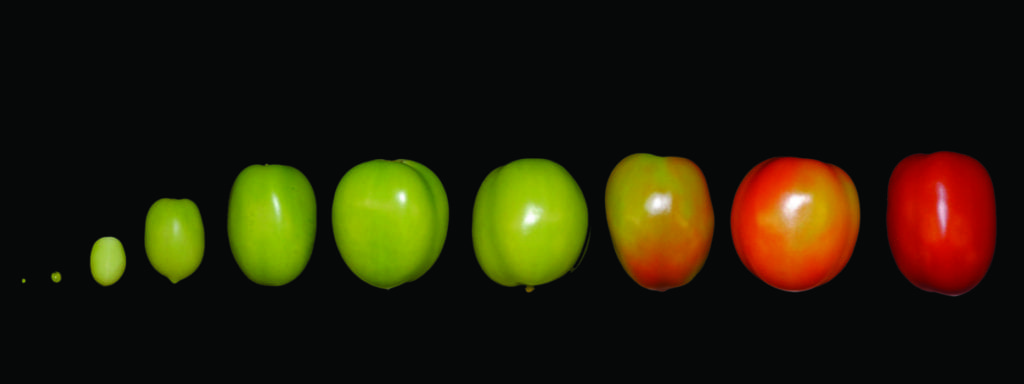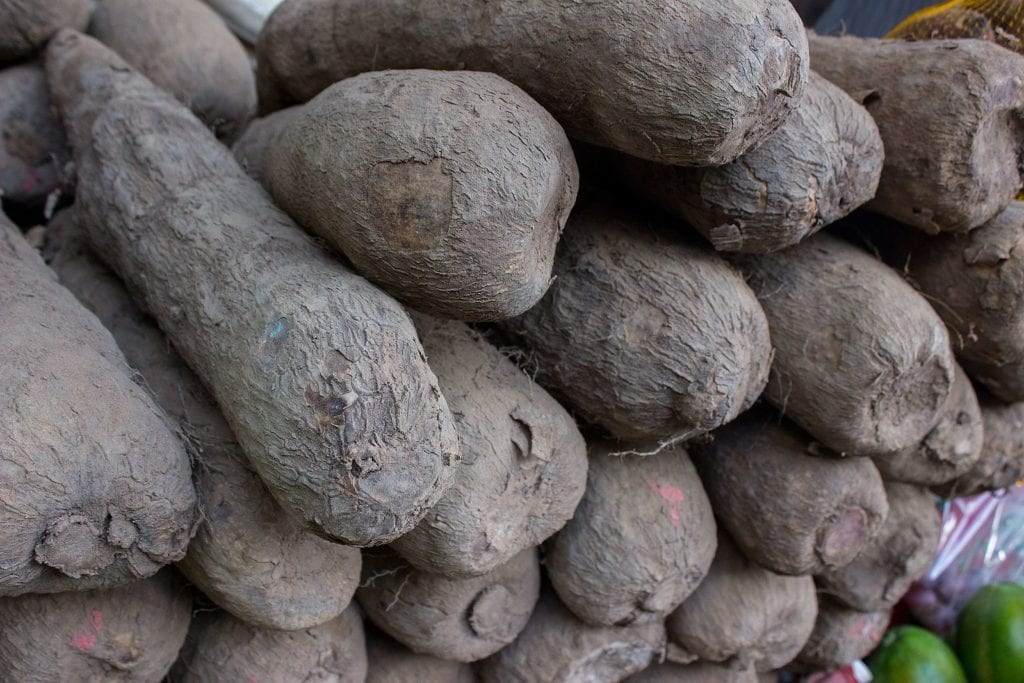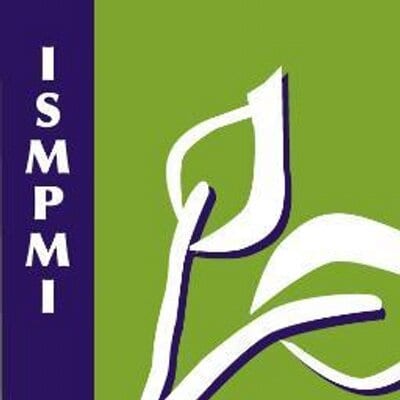Open-access wild tomato genome offers valuable insights for tomato growers, crop scientists
The new S. lycopersicoides genome sequence offers the opportunity for innovative breeding programs that may hold the ability to confer desirable traits to marketable tomato varieties.
Updated BTI mission statement emphasizes dedication to discovery
Discoveries lead to new knowledge, which becomes part of our collective understanding of plants and other organisms. That foundational knowledge then forms the basis for fulfillment of the other component of BTI’s mission, which produces societal benefits in agriculture, environment and health.
New funding supports cassava development in Africa
Cornell University and BTI will expand international efforts to deliver improved varieties of cassava to smallholder farmers in sub-Saharan Africa with $35 million in new funding from the Bill & Melinda Gates Foundation and UK aid in the United Kingdom.
Now hiring: collaborative faculty team at BTI
The Boyce Thompson Institute (BTI) is hiring for novel faculty team positions at the Assistant Professor level. Review of applications will begin on April 23, 2018. Please send any inquiries to teamsearch@btiscience.org.
Robert Granados and the discovery behind HPV vaccine
10 years ago, an HPV vaccine called Cervarix™ was released. The High-Five™ insect cell line, developed at BTI by Dr. Robert Granados, is now being used to produce it. Granados discusses the discovery in a recent edition of BTI's Science Bomb podcast.
Oliver Schulze brings new ideas, family history to the BTI Board of Directors
Schulze discusses his goal to bring his professional experience and family history to the BTI Board of Directors in the newest edition of BTI's Science Bomb podcast.
New ‘Tomato Expression Atlas’ dives deep into the fruit’s flesh
Researchers at BTI, Cornell and USDA published a spatiotemporal map of gene expression across all tissues and developmental stages of the tomato fruit – the genetic information underlying how a fruit changes from inside to out as it ripens. Their data is available in the new Tomato Expression Atlas (TEA).
Better breeders, better yams: YamBase workshops help improve yam breeding
More than 70 participants joined in on the training sessions provided by members of BTI's Mueller Lab, October-December 2017.
Maria Harrison featured in interview with International Society for Molecular Plant-Microbe Interactions
In this IS-MPMI's interview with Kevin Cope (University of Wisconsin-Madison), Maria Harrison discusses her research on arbuscular mycorrhizal fungi and provides advice to young scientists entering the field.
Maria Harrison, consortium of scientists receive $5 million grant to study genes that help legumes access soil nutrients
BTI's Harrison lab will develop Medicago truncatula mutants to identify the function of genes predicted to be important in nitrogen fixation in legumes.

